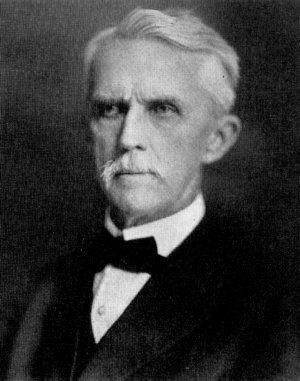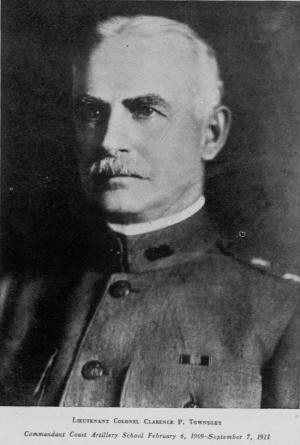Related Research Articles

Samuel Jones Tilden was an American politician who served as the 25th governor of New York and was the Democratic nominee in the disputed 1876 United States presidential election.

The North Carolina superintendent of public instruction is an elected constitutional officer in the executive branch of the government of the U.S. state of North Carolina. As the head of the North Carolina Department of Public Instruction,the superintendent oversees the public school systems of the state. They also serve as the secretary of the North Carolina State Board of Education and are a member of the North Carolina Council of State. The incumbent is Catherine Truitt,who became superintendent on January 2,2021.

The North Carolina State Board of Education,established by Article 9 of the Constitution of North Carolina,supervises and administers the public school systems of North Carolina. The board sets policy and general procedures for public school systems across the state,including teacher pay and qualifications,course content,testing requirements,and manages state education funds.

June St. Clair Atkinson was elected North Carolina Superintendent of Public Instruction on November 3,2004,in a race that was decided by the North Carolina General Assembly on August 23,2005. She was re-elected in 2008 and 2012.

With God,all things are possible is the motto of the U.S. state of Ohio. Quoted from the Gospel of Matthew,verse 19:26,it is the only state motto taken directly from the Bible. It is defined in section 5.06 of the Ohio Revised Code and sometimes appears beneath the Seal of Ohio. The motto was adopted in 1959 and survived a federal constitutional challenge in 2001. The state maintains that it is a generic expression of optimism rather than an endorsement of a particular religion.

Philip Keyes Yonge,usually given as P. K. Yonge,was a businessman and civic leader. A resident of Pensacola,he was a prominent Floridian. A founding member of the Florida Board of Control,he served on that board for almost 30 years as a member and chairman. The P.K. Yonge Developmental Research School in Gainesville is named for him.

Richard Cutts was an American merchant and politician. A Democratic-Republican,he was most notable for his service as Second Comptroller of the United States Treasury from 1817 to 1829 and a United States representative from Massachusetts from 1801 to 1813.
The following table indicates the party of elected officials in the U.S. state of Oregon:

The Florida Department of Education (FLDOE) is the state education agency of Florida. It governs public education and manages funding and testing for local educational agencies. It is headquartered in the Turlington Building in Tallahassee.

Clarence Page Townsley was a career United States Army officer who became Superintendent of the United States Military Academy.

The superintendent of public instruction, sometimes referred to as the state superintendent of schools,is a constitutional officer within the executive branch of the Wisconsin state government,and acts as the executive head of the Department of Public Instruction. Twenty-eight individuals have held the office since statehood. The incumbent is Jill Underly.
The Florida Sentinel was a newspaper established in Quincy,Florida,United States and then relocated to Tallahassee,Florida where it was published from 1841 until 1865. Joshua Knowles founded the paper and Joseph Clisby became the paper's editor in Tallahassee. The newspaper office printed a journal of the Senate during its first session and reports on the Florida Supreme Court. The House also contracted with him to publish their proceedings. February 19,1870,the paper covered an attack by alligators on circus animals being led through the Great Dismal Swamp. In 1851,the office printed the minutes of the West Florida Baptist Association annual session held October 26 to October 29 1850 at the Union Academy Church in Jackson County.
The following is the planned order of succession for the governorships of the 50 U.S. states,Washington,D.C.,and the five organized territories of the United States,according to the constitutions of each. Some states make a distinction whether the succeeding individual is acting as governor or becomes governor.
George J. Alden was a Florida state senator who became the Florida Secretary of State in 1868. He was involved in a dispute over who was governor when efforts were made to replace Harrison Reed. One account described Alden as "a controversial debt ridden secretary of state... who absconded to Jacksonville with the Great Seal of Florida and used it to try to help Osborn try to impeach Gov. Reed". He was subsequently ousted from office and succeeded by Jonathan Clarkson Gibbs,an African American.
George Speller Wright,generally referred to as G. S. Wright,was an Australian banker,the first Inspector-General of the State Bank of South Australia. His middle name is very commonly misspelled as "Spiller".

Thomas D. Bailey was a public official who served as Florida Superintendent of Education from 1949 until 1965.
Samuel Petty was a local politician and state legislator in Florida. He was also a delegate to Florida's 1885 Constitutional Convention.
Capital Hill Colored School,also known as Capital Hill School,was a school for African American students in Little Rock,Arkansas at Eleventh Street and Wolfe Street. An engraving was made of the school.. It served students up through high school.
Alexander B. Hicks Jr. was a state legislator in North Carolina. He represented Washington County in the North Carolina House of Representatives in 1881.
Lewis Thomas Christmas was a reverend,teacher,school principal and state legislator in North Carolina. He represented Warren County,North Carolina,in the North Carolina House of Representatives from 1879 to 1880.
References
- ↑ Servies, James Albert; Servies, Lana D. (July 2, 1993). A Bibliography of Florida: 1846-1880. J.A. Servies and L.D. Servies. ISBN 9780963637017 – via Google Books.
- ↑ University, Florida State (July 2, 1959). "Florida Educators". Florida State University – via Google Books.
- ↑ Morris, Roy Jr (November 1, 2007). Fraud of the Century: Rutherford B. Hayes, Samuel Tilden, and the Stolen Election of 1876. Simon and Schuster. ISBN 9781416585459 – via Google Books.
- ↑ "The Fernandina Observer (Fernandina, Fla.) 1871-1876". Library of Congress .
- ↑ "The Compiled General Laws of Florida, 1927: Embracing the Subsisting Provisions of the Constitution and Statutes as Contained in the Revised General Statutes of 1920, Incorporating the Constitutional Amendments Adopted Subsequent to the Revised General Statutes of 1920 and the Laws of a General Nature Enacted at the Legislative Sessions of 1919, 1921, 1923, 1925, 1927". Harrison. July 1, 1929 – via Google Books.
- ↑ Pyburn, Nita Katharine (July 1, 1954). "The History of the Development of a Single System of Education in Florida, 1822-1903". Florida State University – via Google Books.
- ↑ Education, United States Bureau of (July 1, 1878). "Report of the Commissioner of Education Made to the Secretary of the Interior for the Year ... with Accompanying Papers". U.S. Government Printing Office – via Google Books.
- ↑ Society, Florida Historical (July 1, 1966). "Florida Historical Quarterly" – via Google Books.